February 5, 2025 | 07:54 GMT +7
February 5, 2025 | 07:54 GMT +7
Hotline: 0913.378.918
February 5, 2025 | 07:54 GMT +7
Hotline: 0913.378.918
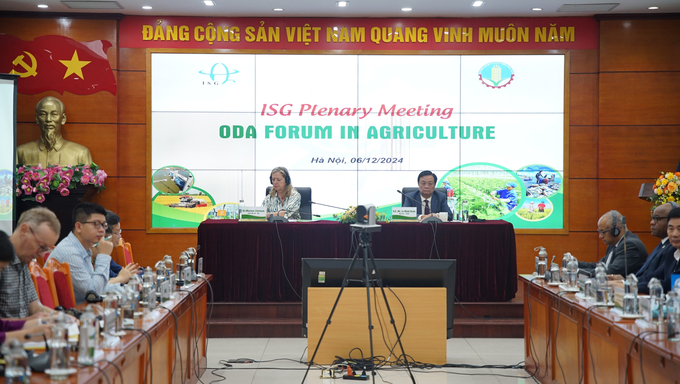
Minister of Agriculture and Rural Development Le Minh Hoan and Ms. Mariam Sherman, Country Director of the World Bank (WB) chaired the Conference. Photo: Linh Linh.
Mr. Nguyen Do Anh Tuan, Director of the Department of International Cooperation (MARD), observed that the ministry approved and signed five loan-funded programs and projects totaling USD 826 million between 2016 and 2020, including USD 662 million in loans, in relation to the use of Official Development Assistance (ODA) and concessional loans in the agriculture and rural development sector. However, no loan agreements were signed, and the use of ODA and concessional loans was restricted to the proposal and preparation of new projects during the 2021-2025 period.
The total anticipated loans for new projects during this period are approximately USD 2 billion, with a focus on partners such as the World Bank (WB), Asian Development Bank (ADB), Japan International Cooperation Agency (JICA), Korea Eximbank (KEXIM), and grants from the Netherlands, Japan, Australia, the Green Climate Fund (GCF), and the Global Environment Facility (GEF), among others.
The projects in progress prioritize the following areas: climate-adaptive irrigation modernization, sustainable fisheries development, disaster risk and climate change management, green development and greenhouse gas emission reduction, agricultural value chain development, coastal forest restoration, mangrove ecosystem conservation, biodiversity preservation, and participatory ecosystem management.
MARD is presently executing 112 projects (approved since 2016) with a total grant value of approximately USD 300 million for non-repayable aid.
Mr. Tuan delineated that the estimated public investment plan for new projects that utilize foreign funds is approximately USD 2.16 billion. This plan includes USD 161 million for ongoing projects and USD 2.3 billion for new ones.
Rural infrastructure, irrigation, fisheries, reforestation, agricultural value chain development, and high-tech applications comprise investment priorities. Scientific research, management, climate change response, ecological development, and forest conservation will be the primary focus of non-repayable aid.
ADB's Country Director, Mr. Shantanu Chakraborty, underscored the organization's commitment to agriculture as a policy priority. There are four initiatives in Vietnam that the organization is presently working on, with a total investment exceeding USD 400 million. Three of these projects involve MARD.
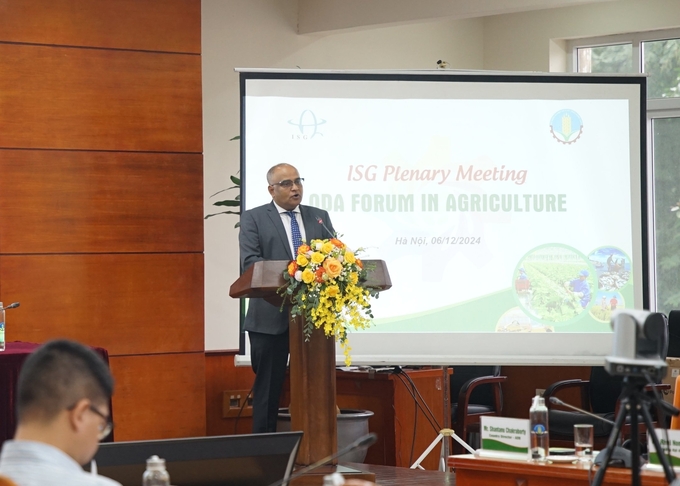
Mr. Shantanu Chakraborty, ADB Country Director, assessed the importance of ODA for Vietnam's agricultural development in the new context. Photo: Linh Linh.
Mr. Chakraborty acknowledged the challenges of capital access and loan efficiency, but he also concurred that Vietnam still requires ODA funding to develop agriculture, particularly given emerging challenges such as climate change, pandemics, geopolitical conflicts, and supply chain disruptions.
He attributed the decrease in the efficacy and mobilization of ODA loans to Vietnam's exclusion for concessional loans. Nevertheless, he observed that ODA loans at commercial rates are still relatively more affordable than other international funding sources. To facilitate climate adaptation financing for nations such as Vietnam, the Asian Development Bank (ADB) is eager to implement policy modifications.
Additionally, Mr. Chakraborty recommended that the government and ministries conduct precise lifecycle analyses of ODA projects to make informed decisions and ensure the efficient implementation of each phase.
A representative from USAID expressed interest in collaborating on projects such as "One Health," which involves the development of one million hectares of high-quality rice in the Mekong Delta, as well as the enhancement of endemic disease surveillance. These projects are associated with green growth and emission reduction.
Dutch Ambassador Kees van Baar disclosed at the conference that the Netherlands intends to allocate approximately USD 60 million in non-repayable aid to a mangrove forest initiative in the Mekong Delta. Nevertheless, he underscored the necessity of more robust political commitments to guarantee effective support.
According Mr. Rémi Nono Womdim, FAO Representative to Vietnam, while ongoing initiatives aimed at transforming agrifood systems are very promising, we need to work at scale to achieve multiple food systems outcomes. To this end, ambitious investments are required.
However, the funding landscape is far from being ideal. ODA funding for agriculture development has decreased significantly in Viet Nam during the past seven years.
The ISG Plenary meeting is very important for it offers the opportunity to share thoughts on potential sources of funding for the implementation of the National Action Plan for Food Sytems Transformation.

(VAN) Scientists have found that insect frass–a blend of excreta, feed, and molted skins – is far from a mere waste product. Instead, it could play a key role in advancing greener, more sustainable agriculture.
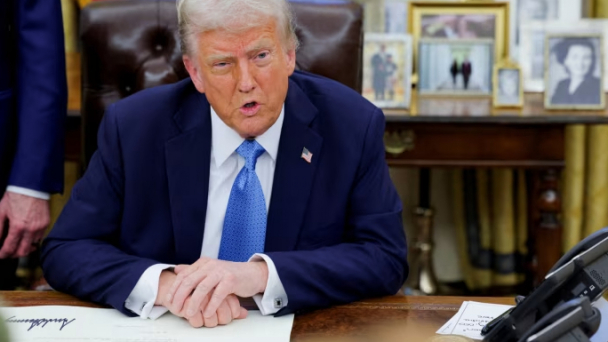
(VAN) US president says he will hit Canada, Mexico, China and EU with levies as he targets major trading partners.
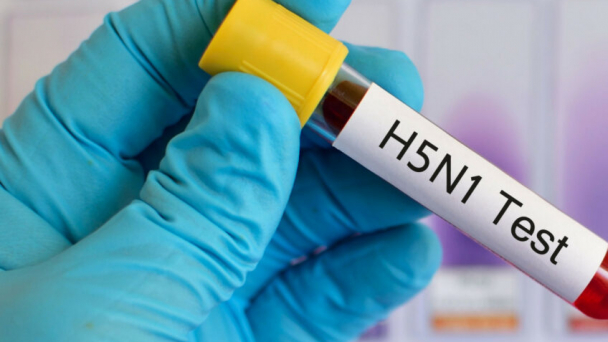
(VAN) A research study of bird flu viruses in cattle has shown that the H5N1 strain does not pose an increased threat to humans.
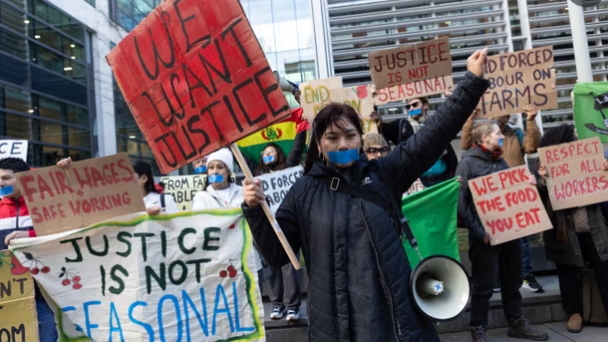
(VAN) In two actions, migrant workers claim exploitation while farmers demonstrate against inheritance tax plan.
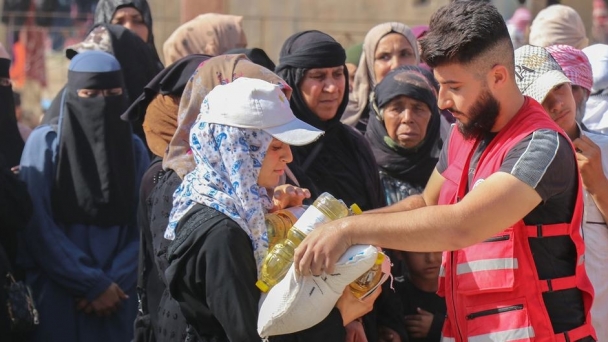
(VAN) From FAO Regional Office for Near East and North Africa.
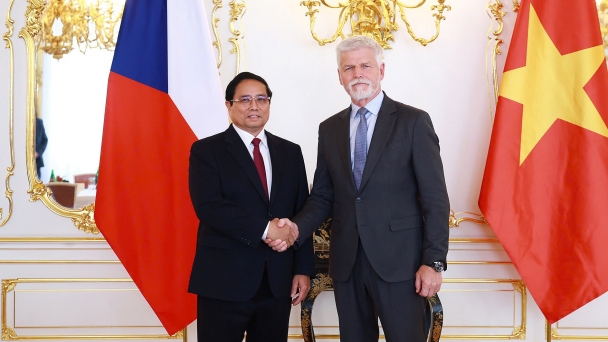
(VAN) President of the Czech Republic Petr Pavel affirmed his support for the EC to consider lifting the IUU 'yellow card' on Vietnam's seafood exports.
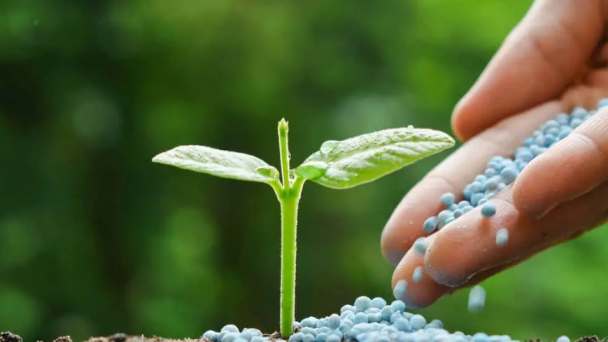
(VAN) Discover how a genetic mutation in plants enhances partnerships with soil microbes, reducing fertilizer use and boosting sustainable farming practices.